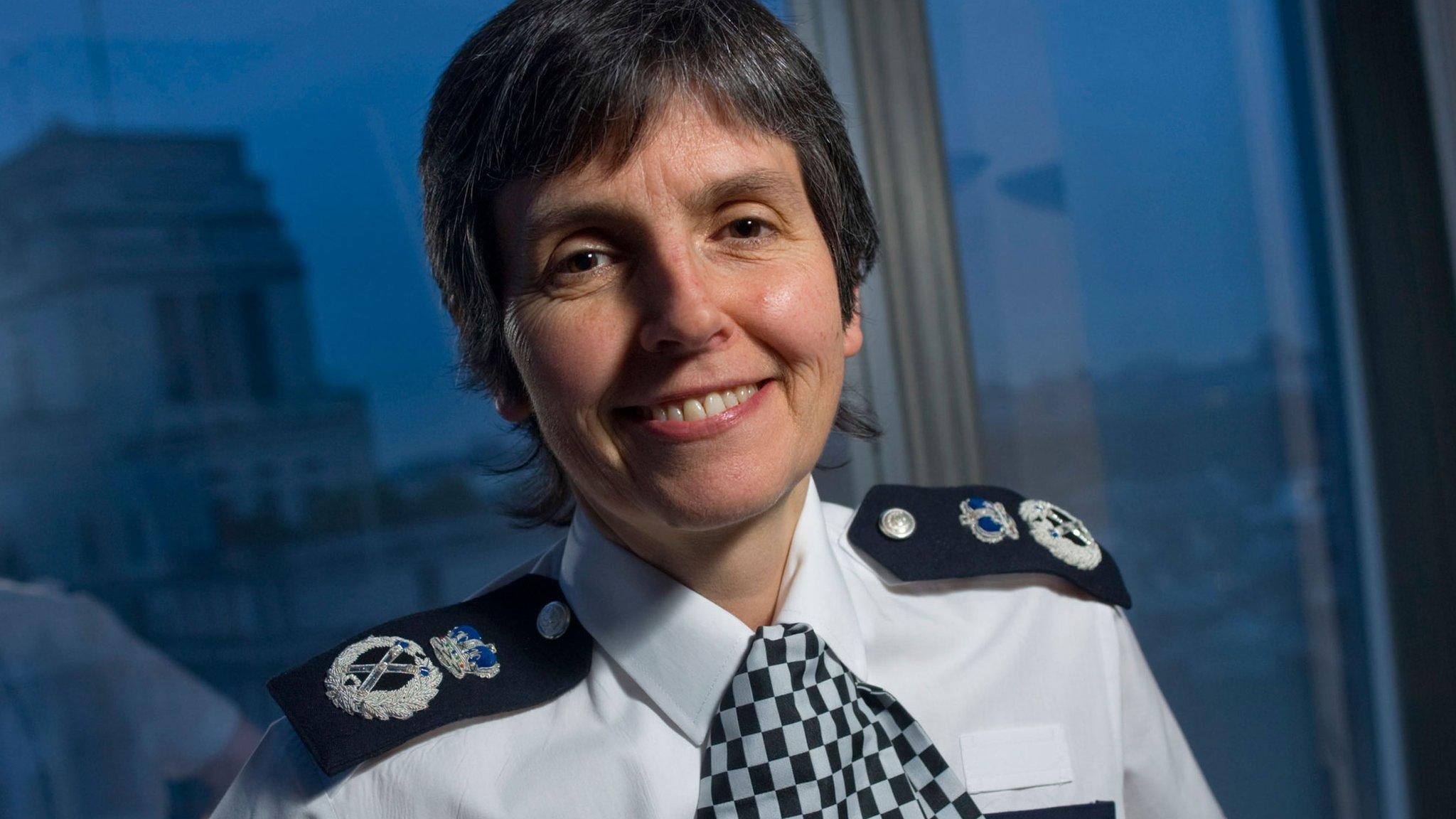Jobs for the boys? The top roles women have never had
- Published
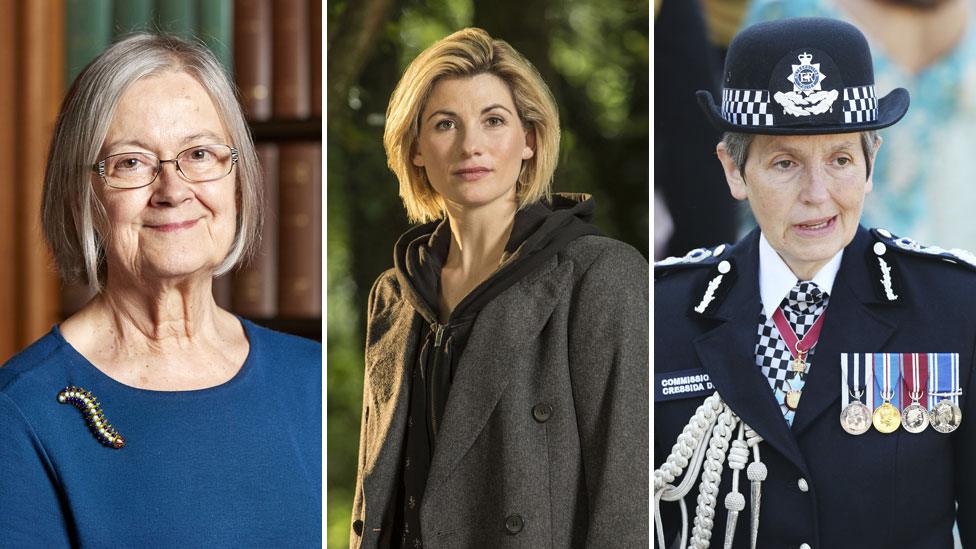
What do Doctor Who, the Metropolitan Police and the UK Supreme Court all have in common?
All three have recently appointed a woman in their leading role for the first time.
Baroness Hale is the latest, continuing her trailblazing career by being named as the president of the Supreme Court on Friday. She followed closely behind Jodie Whittaker's headline-grabbing casting as TV's first female Doctor, while Cressida Dick became the first woman to take charge of London's police force in its 188-year history earlier this year.
That trio have, between them, ended 250 years of male dominance.
Yet there are plenty of renowned British institutions where a woman is still to reach the summit. Here are a selection:
Chancellor of the exchequer
The man in the job
Philip Hammond is the top dog at the Treasury - the latest in a long line of men. He was appointed in July 2016 as the government's chief financial minister.
Along with prime minister, foreign secretary and home secretary, it's regarded as one of the four great offices of state, but while the others have all had female occupants, the wait for the first female chancellor goes on.
The first chancellor listed by the government's website was Sir Richard Sackville in 1559. That's 458 years and counting...
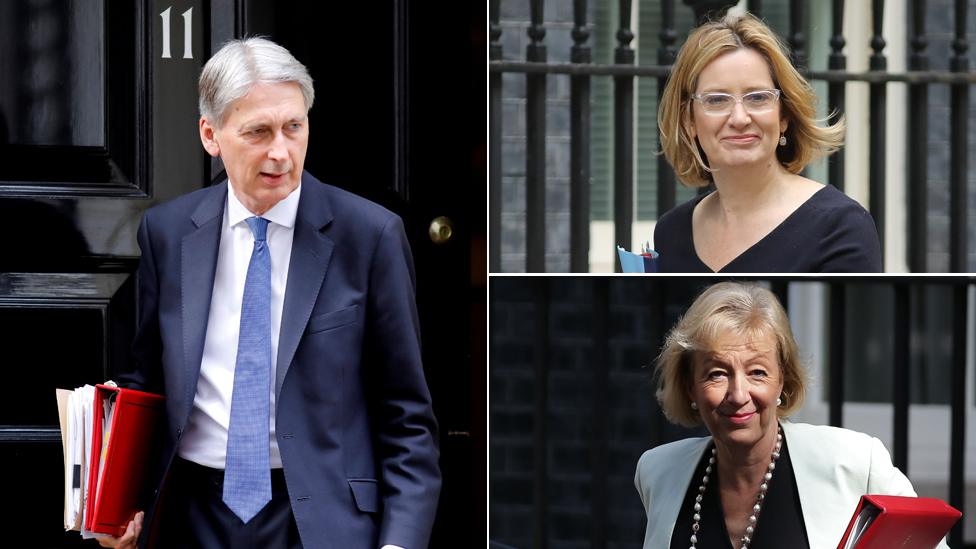
Any women contenders?
Following the Brexit referendum, Andrea Leadsom was briefly one of the favourites to become the next chancellor. Yet she had set her sights on the biggest prize - becoming prime minister. But after losing out to Theresa May, she was then overlooked for the chancellor role.
There were rumours Amber Rudd, the home secretary, was lined up for the role, external this year - but that was seemingly dependent on the Conservatives claiming a landslide victory in June's general election. A hung parliament put paid to that. Mrs May's weakened position meant Mr Hammond kept his grip on the job.
Archbishop of Canterbury
The man in the job
In February 2013 Justin Welby became the 105th Archbishop of Canterbury, the most senior cleric in the Church of England.
It's a mere 1,420 years since St Augustine was the inaugural archbishop.
Of course a woman - the Queen - holds the title of the supreme governor of the Church, but there has not yet been a woman who has taken up that archbishop role.
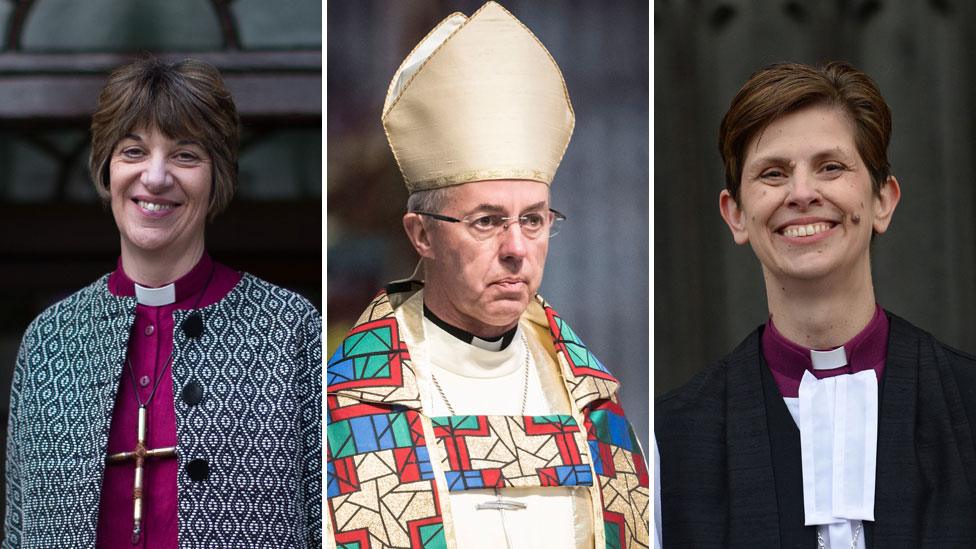
Any women contenders?
The last time this job was vacant, a female candidate wasn't a viable proposition. Women couldn't even be considered for bishop positions.
That all changed in November 2014 when the Church of England voted to allow females into the role, following decades of wrangling over the issue.
Two months later, Libby Lane was consecrated as its first woman bishop. Rachel Treweek went one step further as the Bishop of Gloucester, becoming the first female to be in charge of a diocese. and the first to sit in the House of Lords. By November 2015, eight women had been made bishops.
BBC director general
The man in the job
Tony Hall has been in the hotseat since March 2013, becoming the 16th permanent director general since the BBC's creation.
Lord Reith, the corporation's founder, was the first - and the longest serving - beginning his 11-year tenure in 1927.
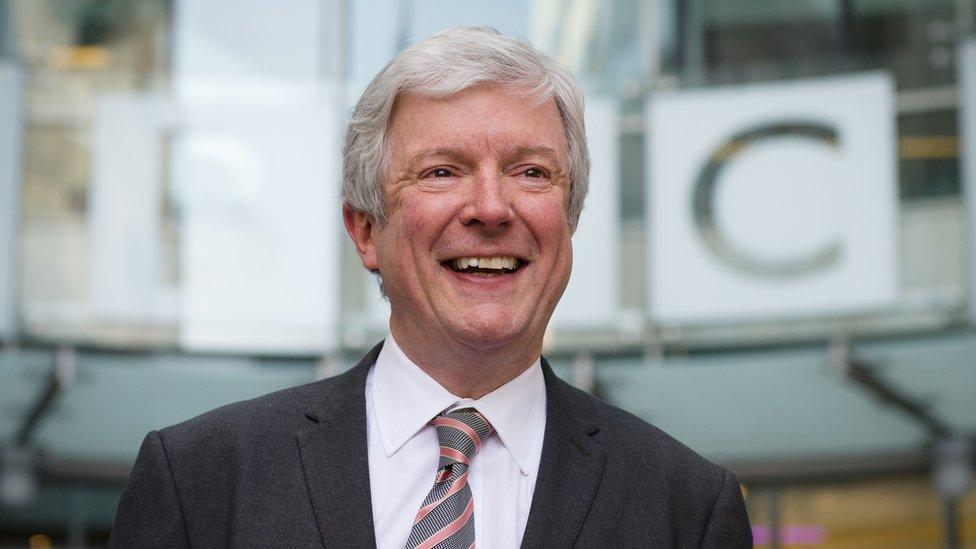
Any women contenders?
Not last time around - Lord Hall was approached directly for the role following the resignation of George Entwistle after just 54 days in the job. The BBC Trust didn't speak to anyone else.
Helen Boaden and Caroline Thomson were strong contenders to replace Mark Thompson in 2012, before Entwistle got the nod.
Last year, Anne Bulford was named Lord Hall's second in command - the first woman to be deputy director general. For rivals Channel 4 a female leader is more imminent. Alex Mahon has been appointed as their first female chief executive and will take up the role in the autumn.
Governor of the Bank of England
The man in the job
Canadian Mark Carney replaced Mervyn King as the head of the UK's central bank in June 2013, becoming the first foreigner to run the institution.
In its 323-year history, there has never been a woman in charge, even though one appears on the front of all of the country's banknotes [yes, the Queen again].
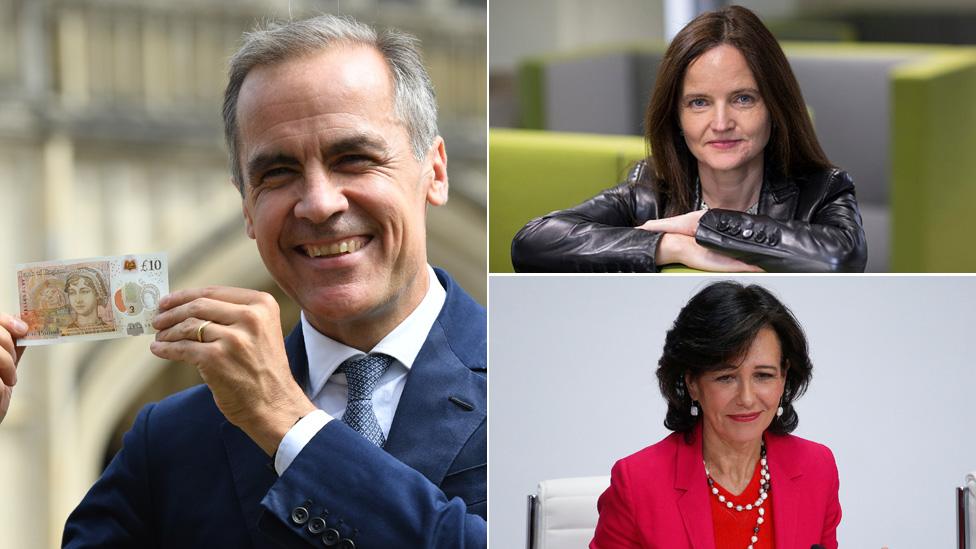
Any women contenders?
Mr Carney has led a drive to get more women in senior roles at the Bank.
Charlotte Hogg landed the newly created role of chief operating officer in 2013 and was the most senior female employee in the institution's history. Earlier this year she was appointed deputy governor and was touted as a potential successor to Mr Carney - before her sudden resignation after failing to disclose a potential conflict of interest.
There has been a woman in charge of a major British bank - Ana Botin became the first female to hold that title when she became chief executive of Santander UK in December 2010. That led her to being named the third most powerful woman in Britain in 2013 by BBC Radio 4's Woman's Hour, just behind the Queen and Theresa May.
Editor of the Times
The man in the job
The newspaper's current editor, John Witherow, has been at the helm since January 2013.
Founded in 1785, the Times is one of Britain's oldest and most influential newspapers around the world, and has had 21 different male editors. It all began with John Walter, whose family owned the paper for almost 125 years.
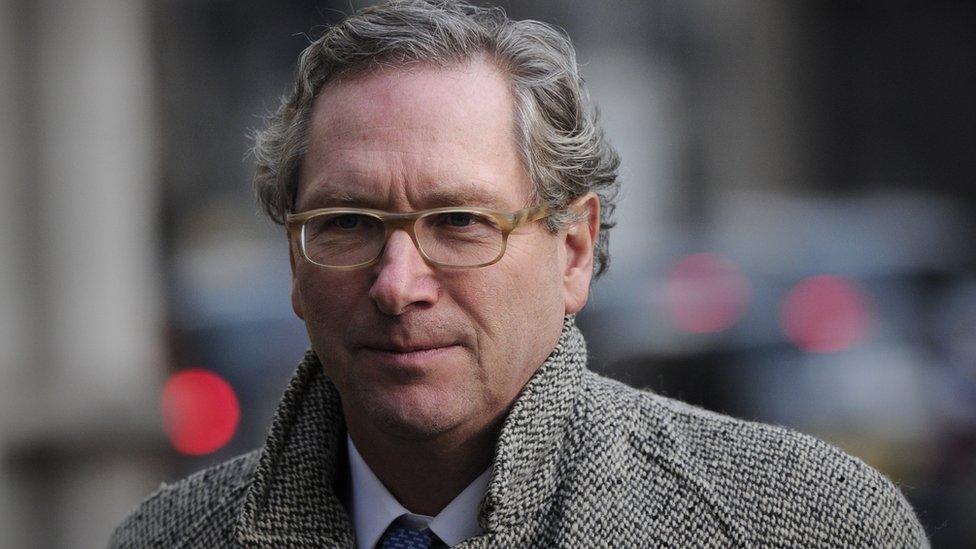
Any women contenders?
Emma Tucker could be in the frame when the position next becomes vacant. The former editor of Financial Times Weekend has been deputy editor at the Times since October 2013. And at sister paper, the Sunday Times, Sarah Baxter has been deputy editor for the last four years,
Women have already made the breakthrough at other newspapers. The Guardian handed the reins to Katharine Viner in 2015 - the first female editor at the paper in 194 years, while Rebekah Brooks' groundbreaking spell in charge of the Sun lasted between 2003 and 2009. And Eve Pollard, the self-styled First Lady of Fleet Street, edited two papers - the Sunday Mirror from 1987 to 1991 and Sunday Express from 1991 to 1994.
But one of the UK's first women editors, Mary Howarth, didn't exactly blaze a trail when she was appointed as editor of the Daily Mirror when it launched in 1903. No other woman has held that role since.
Labour Party leader
The man in the job
Jeremy Corbyn, one of the most unexpected winners of the party leadership in its history, was elected in September 2015.
Founded by Keir Hardie in 1906, Labour has never been led by a woman other than for brief interim periods. Margaret Beckett and Harriet Harman have both been acting leader.
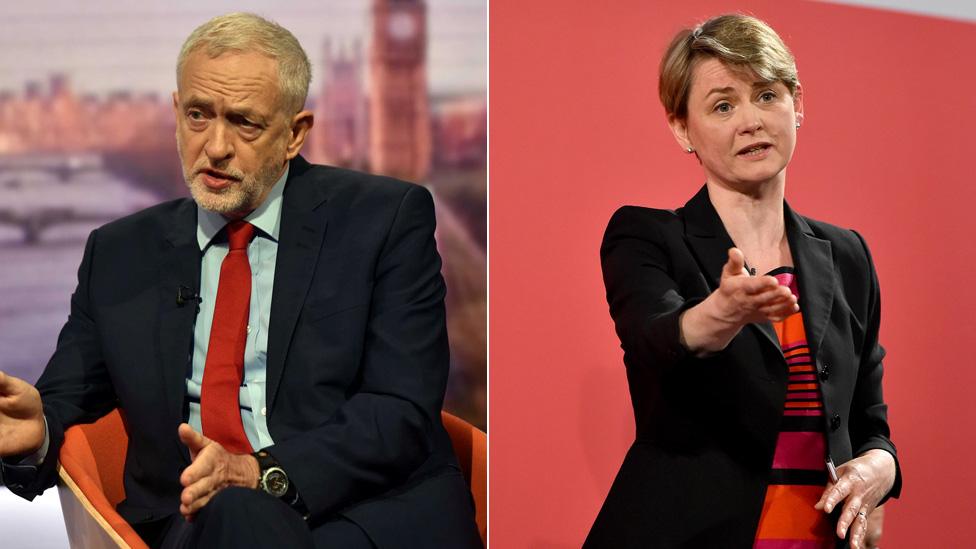
Any women contenders?
Ms Harman was deputy leader under both Gordon Brown and Ed Miliband, but didn't run for the main job. She has since admitted she should have stood in 2010.
Women candidates have a history of doing badly in Labour leadership contests. Diane Abbott trailed in last in 2010 and the two female contenders in 2015, Liz Kendall and Yvette Cooper, came in last and second last. During last year's contest Angela Eagle dropped out before it had officially begun, leaving no women in the race.
If Mr Corbyn was to leave his position any time soon, Ms Cooper is the favourite with some bookmakers. Angela Rayner, the youngest ever shadow education secretary, has also been spoken of as a future contender.
James Bond
The man in the job
Speculation continues over whether Daniel Craig will return as James Bond, but as it stands, he is the man in the driving seat of the superspy's favoured Aston Martin.
He first appeared as 007 in 2006, succeeding the likes of Sean Connery, Roger Moore and Pierce Brosnan in one of the most sought-after roles in British cinema.
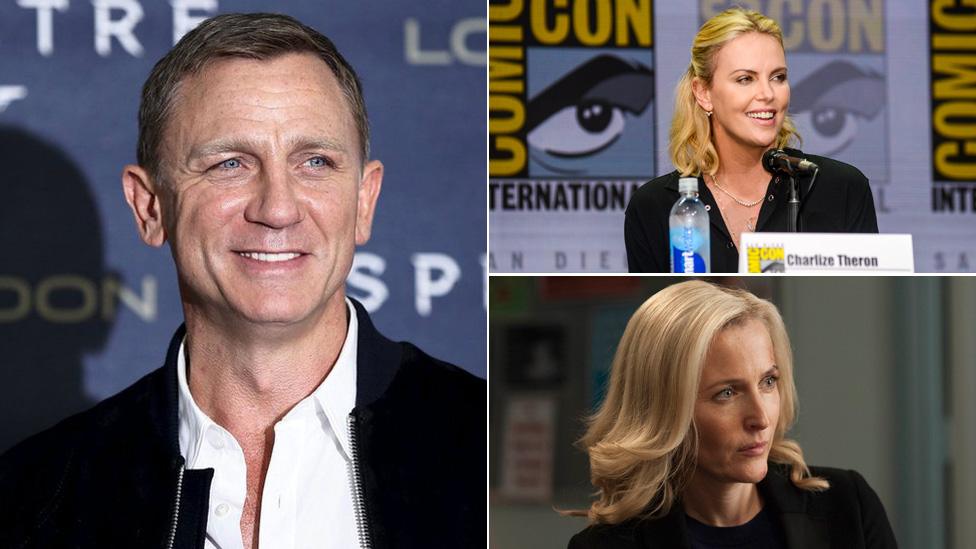
Any women contenders?
Gillian Anderson, of X-Files fame, has put her hat in the ring to be the next 007. Last year she tweeted, alongside a mocked-up poster of herself in the role, "It's Bond, Jane Bond".
Charlize Theron, who plays a British spy in her upcoming film Atomic Blonde, has been endorsed by fellow actor Chris Hemsworth as a future Bond.
Bookmakers certainly aren't writing off the possibility. "Any female" is currently joint-seventh favourite with Ladbrokes and Coral - the same odds as Michael Fassbender.
- Published21 July 2017
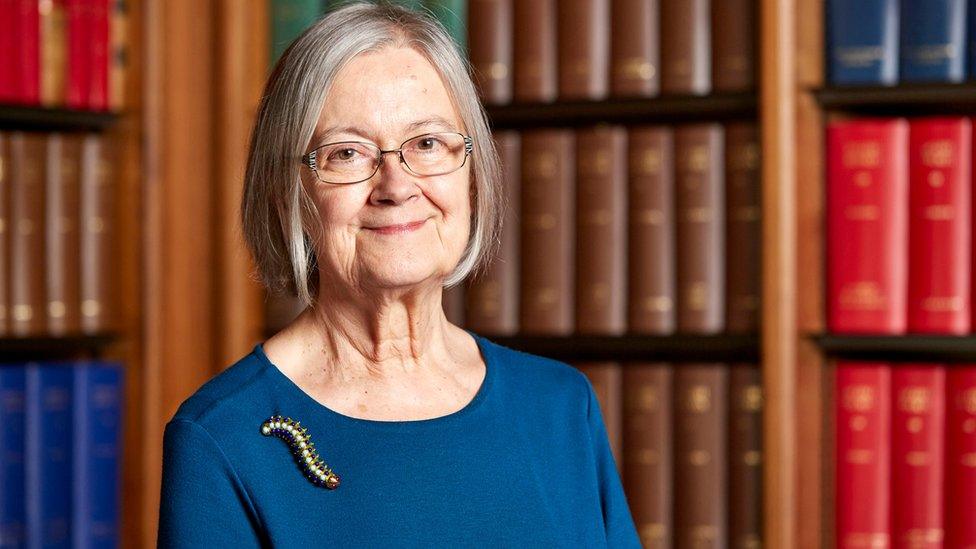
- Published16 July 2017
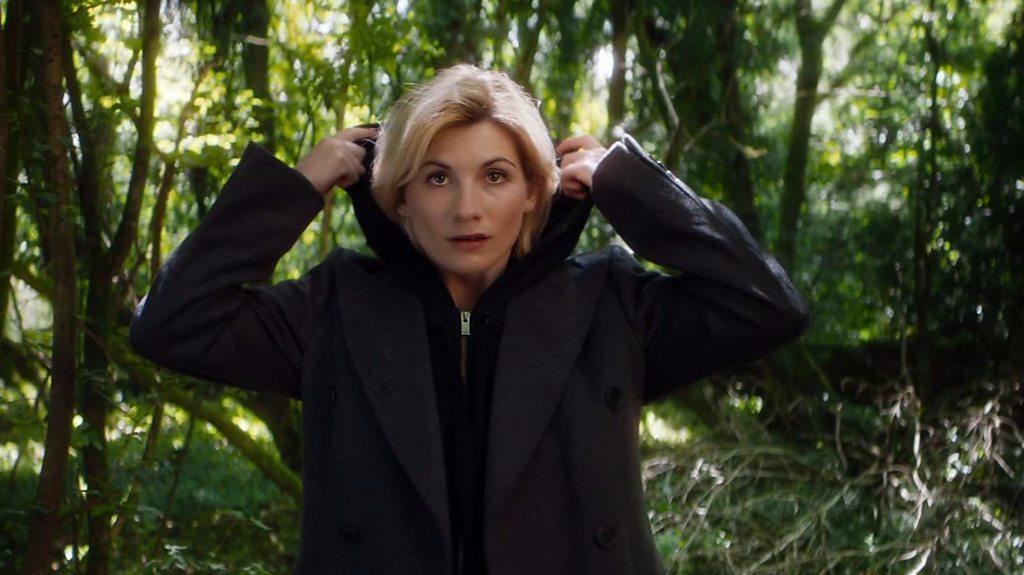
- Published22 February 2017
